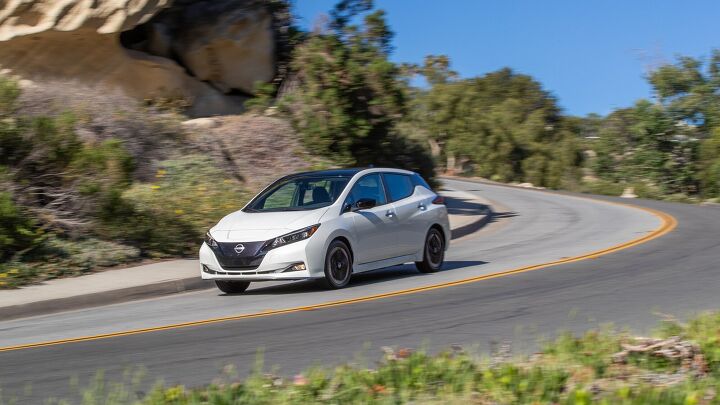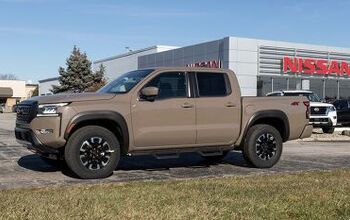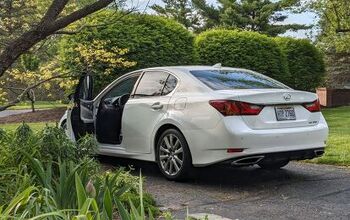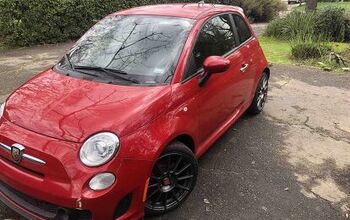The Nissan Leaf is Eligible for a $3,750 Tax Credit Again

The Nissan Leaf was already the most affordable EV on sale, but recent changes have made it even cheaper. The automaker announced that the car has regained eligibility for federal tax credits, though for only half of the maximum $7,500.
With the credit, the Leaf starts in the mid-$25,000 range, extending its lead as the cheapest EV on sale. It’s followed not-so-closely by the Mini Cooper SE, but regaining tax credit eligibility is a significant boost. The car qualified for tax credits through the end of last year, but automakers have to recertify vehicles under the new rules, and Nissan has only just done that for the Leaf.
Half of the EV tax credit is tied to raw materials sourcing, requiring that they come from a country with which the U.S. has a free-trade agreement. The Leaf doesn’t qualify for that half, but Nissan builds the car and its batteries at its plant in Smyrna, Tennessee, giving it access to the other $3,750. Changes to the rules in 2024 have knocked a significant number of vehicles out of eligibility, but many will return as automakers nail down their supply chains.
The Leaf has been around for a while without major changes, and its low price likely comes from its middling range numbers, which max out at 212 miles. That said, it’s a surprisingly practical car with plenty of interior space and a decent number of standard features for the price.
While it’s true that Americans don’t buy that many hatchbacks, it’s even truer that cars like the Nissan Leaf are precisely what we need. There’s no shortage of $50,000-plus EVs from all corners of the auto industry, but the sub-$30,000 (or even sub-$40,000) market is pathetically tiny. Anyone serious about electrification should celebrate cars like the Leaf and hope that Nissan keeps its ship upright going forward to keep building it, or a next-gen car like it.
[Image: Nissan]
Become a TTAC insider. Get the latest news, features, TTAC takes, and everything else that gets to the truth about cars first by subscribing to our newsletter.

Chris grew up in, under, and around cars, but took the long way around to becoming an automotive writer. After a career in technology consulting and a trip through business school, Chris began writing about the automotive industry as a way to reconnect with his passion and get behind the wheel of a new car every week. He focuses on taking complex industry stories and making them digestible by any reader. Just don’t expect him to stay away from high-mileage Porsches.
More by Chris Teague
Latest Car Reviews
Read moreLatest Product Reviews
Read moreRecent Comments
- Tassos THAT'S what happens when you FORCE an Idiot Joe Biden EV mandate on the industry. Tens of billions will be lost and widespread misery. They will be LUCKY if they don't go BANKRUPT AGAIN at GM and Stellantis, or for the first time at FORD.
- Theflyersfan This system would be in total overload from Washington, DC/NoVA all of the way to Boston, because it seems that every driver in that area is having some form of a bad day to a total psychotic meltdown. What's HAL9000 doing to do, recline the driver's seat, put some kind of aroma candle scent through the vents, turn on the massage seat, and give you some kind of "Demolition Man" YOU FEEL GREAT TODAY platitudes on the infotainment screen?
- SCE to AUX The dealers could easily get away with two Level 2 chargers and one or two Level 3 chargers at most.Ford has bungled this from the beginning.
- Theflyersfan Ford, it's simple. If you want to continue to only sell EVs that have some serious quality issues and are over $60,000, you aren't going to need to make many changes and add extra chargers and the such because you aren't going to sell that many.However, if they somehow come up with a plan and sell an EV that has all of the issues and bugs figured out, decent range, and comes in around the national average of $40-$45,000, then start installing chargers because they might just sell a few. But as all of the Ford articles have been showing lately, there's rot at all levels of the chain there so good luck guys.
- Carson D Ford: Built by the Model T. Killed by the Model e.


































Comments
Join the conversation
Make 62kwh battery standard. Improve the battery cooling/conditioning. Change charging to NACS.
Leaf will sell. It will.
There are Leaf enthusiasts now testing CHADEMO to CSS adapters now. See YouTube videos. The Leaf is a great one fast charge a day kind of car. Excellent if it is mostly being used locally and charged at home on L1 or L2.